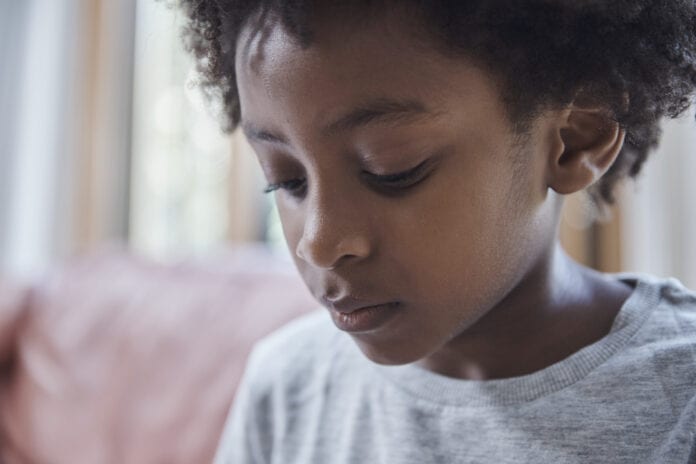- Almost 2,500 referrals made from NSPCC helpline to external agencies in Wales last year – a 28% rise from 2019/2020
- Adult’s mental health and behaviour the top concern, followed by neglect, physical abuse and emotional abuse
- NSPCC Cymru/Wales calls for Welsh Government recovery plans to go beyond education and invest in a positive future for children
- The charity reveals plans for Childhood Day this June which will bring the nation together to celebrate play, raise money and help keep children safe
A sharp rise in child welfare referrals being made from the NSPCC helpline to external agencies such as the police or children’s services in Wales in the last year – against the backdrop of the pandemic – has been revealed by the child protection charity.

There were 2,494 referrals made by the helpline to external agencies in Wales in 2020/21 – a 28% increase compared to 2019/20. Referrals are made when concerns reported to the helpline are considered serious enough to warrant further investigation.
The top reasons for referrals being made go unchanged, with concerns relating to parental and adult mental health and behaviour leading to 932 referrals to Wales-based agencies. This includes worries about parental alcohol and substance misuse, domestic abuse and parental mental health.
This was followed by:
- Neglect – 478 referrals made by the NSPCC helpline to agencies in Wales
- Physical abuse – 432 referrals made by the NSPCC helpline to agencies in Wales
- Emotional abuse – 308 referrals made by the NSPCC helpline to agencies in Wales

Adults from Wales who contacted the NSPCC helpline have been worried about the welfare of children in their communities.
“I’m worried about the safety of a young girl who lives across street from me – she can’t be older than 4 or 5. The girl’s mum and step-dad are constantly at each other’s throats, screaming and shouting. Sometimes their rows last until gone midnight. I’m not sure if physical violence is involved, however there’s smashed furniture sitting outside their property, and the other day I noticed the mother was limping. I’ve even heard the step-dad swearing at the little one and threatening to throw her toys away. I wish to remain anonymous as I fear for my safety – but someone has to do something to protect this child”.
(Member of the Public, from Wales)
“I’m concerned about a baby belonging to a friend of mine. I’ve just come off a Facetime call with the friend who told me she got drunk last night and ‘couldn’t be bothered’ to look after her baby, whose only a few weeks old. I could hear the baby screaming and crying in the background and there were lots of dirty nappies and used milk bottles in the background. On top of this, my friend is on anti-psychotics and she told me she hasn’t taken her medication for days. I’m worried my friend isn’t in the right place mentally to take care of her kid right now. What should I do?”
(Member of Public, from Wales)
A record number of adults with concerns about children called the NSPCC in the last 12 months, as contacts to its helpline UK-wide rose by nearly a quarter. The service received nearly 85,000 contacts from April 2020 to March 2021, a 23% increase on the previous year. Of these, 39,995 contacts were referred to external agencies such as the police or children’s services.

The figures echo concerns from the charity’s frontline teams that the pandemic has increased the risks of abuse and neglect, with children both more vulnerable and sometimes out of sight of people who can keep them safe.
The NSPCC is now warning that with most children back in schools and society, the hidden harms they experienced during the lockdowns will become visible.
The charity is calling for the Governments across the UK to invest in a positive future for children by ensuring their recovery plans go beyond education. In the short term, they must address any harm and trauma children may have faced in the past 12 months, but Governments must also use the opportunity to invest in keeping children safe and well in the future.

Policy and Public Affairs Manager for NSPCC Cymru/Wales, Cecile Gwilym says: “To build a better future for children in Wales, we want to see a big focus on prevention and protecting children from neglect and abuse both online and offline.
“As well as delivering a supportive environment in the early years and helping children to speak out about abuse, we want the next Welsh Government to ensure that services are available, accessible and well-equipped to help children recover from traumatic experiences.”
Peter Wanless, NSPCC CEO, says: ”We’ve been hearing first-hand about the immense pressures families have faced during the pandemic and the heavy toll that has taken on children and young people. For some children, this has included experiencing abuse, bereavement and other harm.
“The record number of contacts to our helpline reinforces the need for Governments across the UK to put children at the heart of their recovery plans. These must go beyond education and address the harm some have experienced so the pandemic doesn’t leave a legacy of trauma for children.
“But this isn’t just a job for our Governments. Everyone has to play their part in keeping children safe. And that’s why we’re planning Childhood Day on 11 June when we’ll celebrate childhood and encourage people to get involved in making sure all children grow up happy and safe.”
The campaign will celebrate childhood by bringing the nation together to play, raise money and help keep children safe. It will put a spotlight on what it is to be a child, whilst also showing we must work together to prevent abuse and protect children.
The NSPCC helpline is staffed by trained professionals who can provide expert advice and support for adults with concerns about a child, or for parents, carers and professionals looking for information or guidance. To get in contact, call 0808 800 5000, email help@nspcc.org.uk or fill in our online form.

| [donate]
| Help keep news FREE for our readersSupporting your local community newspaper/online news outlet is crucial now more than ever. If you believe in independent journalism,then consider making a valuable contribution by making a one-time or monthly donation. We operate in rural areas where providing unbiased news can be challenging. |





















